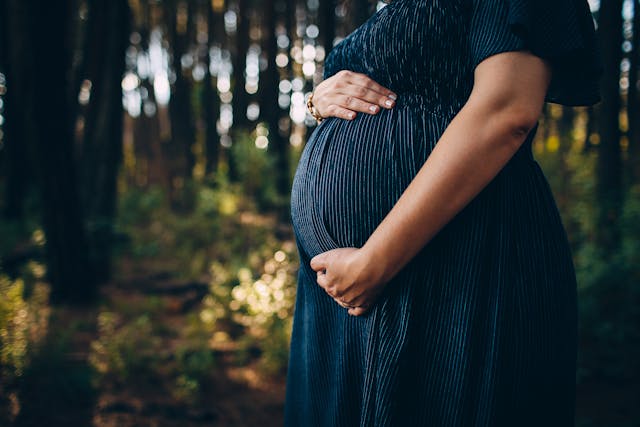Over the years, I’ve spoken with many women who chose abortion, and what strikes me most is how often their stories begin long before pregnancy. They speak of home life marked by uncertainty and instability – fathers who walked away, mothers who struggled alone, and many times, families that failed to form at all.
When family is broken, the value of life itself is harder to see. Cristina Cevallos explores how the wounds of fractured families echo into adulthood—and how healing those wounds is essential if we are to build a culture that cherishes every life.
All life matters,
Wendy Wixom, President
United Families International
Broken Families: A Clear Path Toward the Legitimation of Abortion
By Cristina Cevallos
Recent headlines report that U.S. abortion numbers have climbed to their highest level in over a decade – reaching 1.14 million procedures in 2024, up from 1.05 million in 2023—countering expectations following the Dobbs decision. Behind those numbers are women facing profound personal struggles, many of which began long before an unplanned pregnancy. For countless men and women, the decision is less about the present moment and more about scars from the past—growing up without stable, married parents, carrying the weight of broken families, and struggling to believe in the permanence of love. When family itself feels fragile, the gift of new life can feel just as uncertain.
According to a study published by the American Journal of Obstetrics and Gynecology, women who undergo repeated abortions are more likely to have experienced childhood adversity. While women often cite a range of reasons for choosing abortion, this deeper underlying factor might subtly influence their decision, perhaps without their full awareness.
Emotional Effects of Missing Parents
Numerous authors have repeatedly pointed out that the family environment in which a person is raised profoundly affects children and has long-term positive or negative effects in them. One such outcome appears to be the increased likelihood of abortion among children who come from broken families (due to absent fathers or divorce) and from alternative family structures, particularly cohabitation.
Brad Wilcox and Maria Baer indicate that family turmoil tends to manifest itself in boys through more “externalizing” behaviors, such as fighting, delinquency, and difficulties at school, while in girls it is more often expressed through “internalizing” behaviors, including self-harm, anxiety, and depression. They have also identified that children in one-parent households are about twice as likely to be diagnosed with depression and three times as likely to experience behavioral or learning problems at school.
Additionally, the Institute for Family Studies notes that parental divorce places individuals at greater risk of poor health, as it often results in a decline in the family’s socioeconomic status, a higher likelihood of behavioral problems in late childhood, and an increased propensity to smoke. They add that the latter may be adopted by children as a way of coping with the psychological and emotional stresses associated with parental divorce.
The absence of both parents raising children together within marriage leads inevitably to emotional consequences that manifest in different ways over the years. These may include low self-esteem, the adoption of negative role models, a lack of responsibility or, conversely, the assumption of responsibilities prematurely. Some children feel guilty for the breakup of their parents’ relationship, while others come to see themselves as commodities in their parents’ conflicts.
Long-Term Impact on Relationships
In these cases, sons may draw the wrong lessons, seeing the men around them as neither working nor committed fathers, while daughters may decide either that they do not need a man to thrive or that they want to avoid becoming single mothers like their own, potentially resorting to abortion if necessary.
Many also report that their parents’ breakup had a profound impact on them, often affecting their ability to make long-term commitments. Focus on the Family Canada notes that anxiety leads many of these children to make poor choices in their personal lives, give up quickly when problems arise, or avoid romantic involvement altogether.
Notably, they tend to develop more permissive attitudes and behaviors toward premarital sex, engaging in risky sexual behaviors, including unplanned pregnancies, multiple sexual partners, and initiating sexual activity at younger ages. In fact, children raised by divorced parents also have higher rates of teen pregnancy.
In sum, women and men face greater difficulty in forming and maintaining strong relationships as adults after experiencing family instability or dysfunction as children. This can help explain why the Guttmacher Institute reports that 86 percent of abortions are performed on single women.
The Family as the Place We Learn to Value Life
The ongoing crisis affecting families plays a significant role in undermining the value of life. When marriage and parenthood break down, the framework in which life is welcomed and protected as a gift is lost. This results in situations where children do not value their own lives and, consequently, cannot appreciate the value of others’ lives. If they were raised in a utilitarian manner, ending the life of their own child because it is inconvenient becomes easier.
The family is the first place where the value of life is learned, as it is the setting in which this gift from God can be properly welcomed and protected against the attacks to which it is exposed. Therefore, the destruction of the family, as Pope Benedict XVI expressed in Truth and Tolerance, facilitates social acceptance of abortion and other practices that deny the dignity of the person.
Motherhood as a Source of Identity and Healing
However, as illustrated in the life stories collected in Promises I Can Keep by Kathryn Edin, motherhood can become a profound source of identity and purpose in a young woman’s life. For girls who have not had the opportunity to grow up in a stable, married household, and who may be considering abortion, having a child can help them cope with the emotional hardships they’ve endured. A baby offers something these women often deeply need but have been denied: love and intimacy.
As one mother shared, “I think [I got pregnant] mainly because I wanted to be loved. I went through childhood without it.” Only love can heal the void left by its absence. And for many of these women, love can finally be found in the eyes of their own children, but only if they let them live.
Conclusion
Broken families don’t just leave children longing for stability—they quietly shape the choices those children make as adults, even in life-or-death decisions about their own offspring. Yet the story doesn’t have to end with brokenness. While fractured families can sow pain and confusion, strong marriages and stable homes can just as powerfully plant hope. Countless women who once faced despair have found healing in the very gift they thought they couldn’t bear—motherhood.
A child welcomed into a loving, stable home has the power to mend wounds left by the absence of love. If we want fewer abortions, the answer is not only in the laws we pass but in the families we strengthen, reminding every son and daughter that their life—and the life they might one day create—is worth protecting.
 Cristina Cevallos is a Peruvian lawyer with a master’s degree in Human Rights. She combines political experience with her work as a writer and researcher, focusing on bioethics, family, religious freedom, and cultural heritage.
Cristina Cevallos is a Peruvian lawyer with a master’s degree in Human Rights. She combines political experience with her work as a writer and researcher, focusing on bioethics, family, religious freedom, and cultural heritage.

